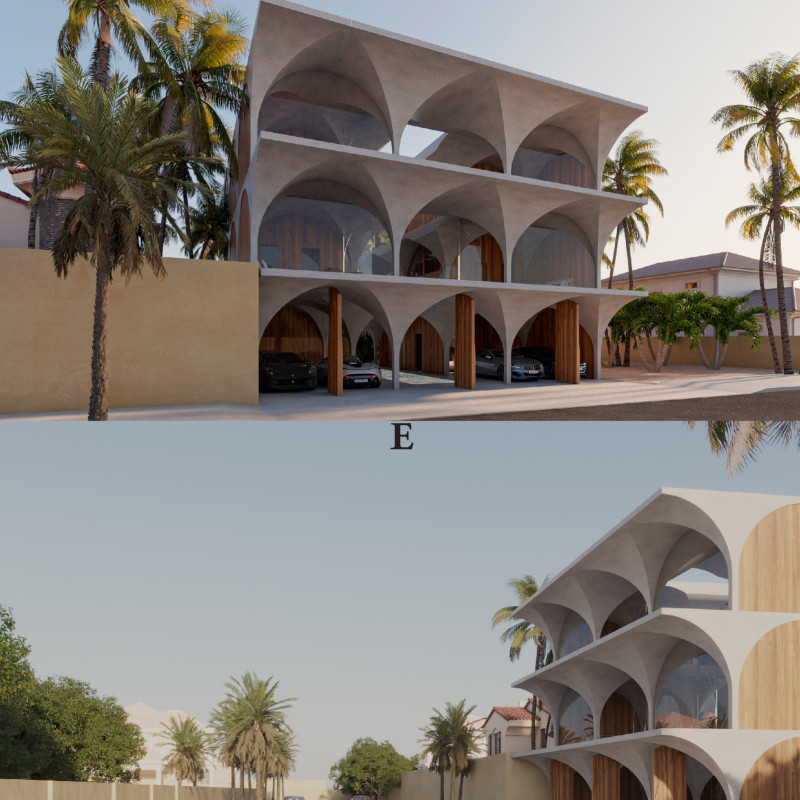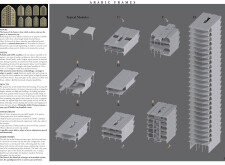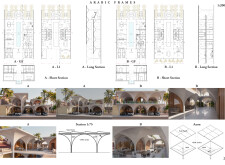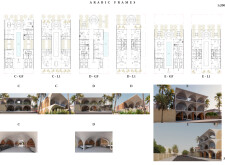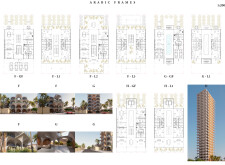5 key facts about this project
## Architectural Analysis Report: Arabic Frames Project
### Overview
The Arabic Frames project introduces a novel approach to multi-family housing within the context of modern Islamic architecture. Located in an urban setting that emphasizes both cultural heritage and contemporary living, the design aims to create a flexible residential environment that acknowledges historical Islamic aesthetics while addressing current and future community needs. This initiative leverages innovative construction methods to establish a sustainable framework for living, reflecting social and environmental values.
### Spatial Configuration and User Engagement
The design features a variety of layouts tailored to accommodate diverse family configurations, promoting both individual privacy and community interaction. Ground floor units are spaciously arranged to foster social engagement, while upper levels are designed with a focus on privacy, connected to communal areas through open atriums and shared facilities. Moreover, the incorporation of prefabricated Glass Fiber Reinforced Concrete (GFRC) modules enables an adaptive living environment, allowing residents to engage in a participatory design process through a dedicated mobile application that facilitates customization of their homes.
### Material Selection and Sustainability
Material choices play a crucial role in both the aesthetic and functional aspects of the project. Glass Fiber Reinforced Concrete (GFRC) is utilized for its strength and lightweight properties, supporting the creation of distinctive architectural forms. Solar panels are integrated within the design to enhance energy efficiency and support sustainable practices. Additionally, the use of wood for interior finishes and external cladding introduces warmth and tactile contrast, while local stone honors regional building traditions, grounding the modern design in its geographical context. These materials contribute to a cohesive architectural expression that harmonizes with the environmental considerations of the region.


